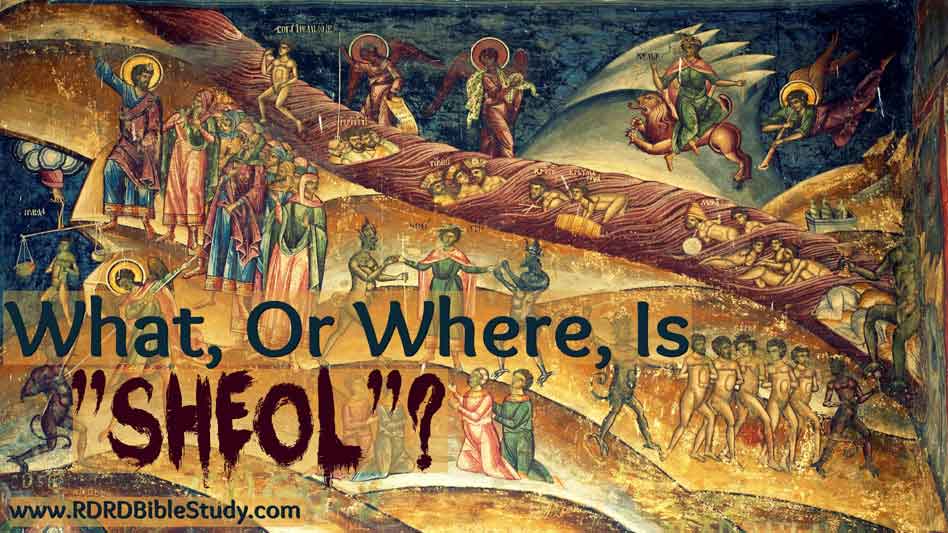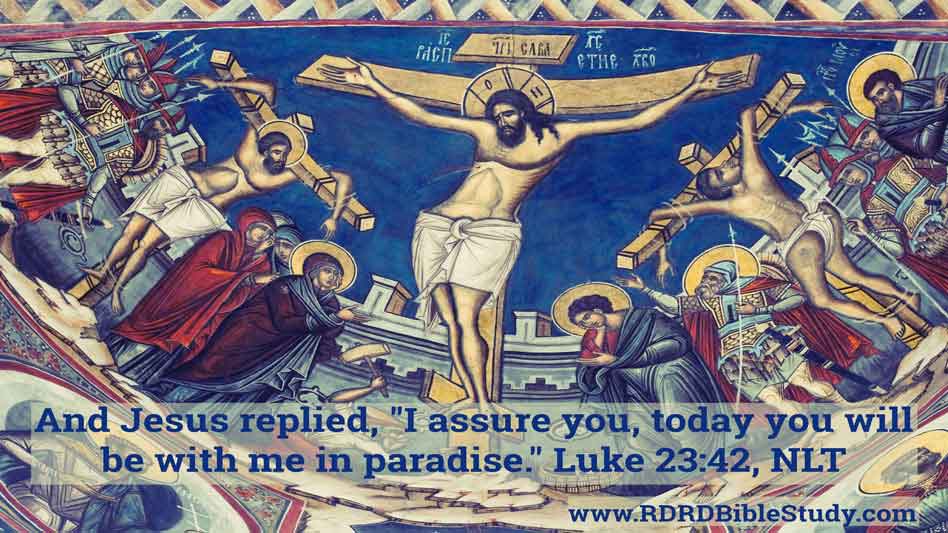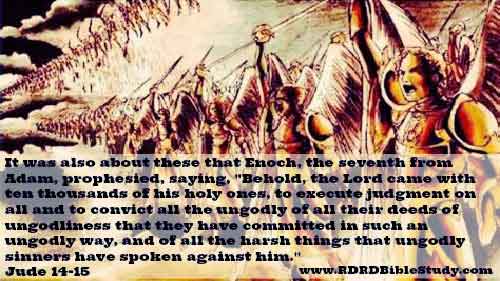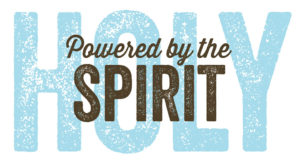What Is “Sheol”?
Or “Where Is “Sheol”?
The common meaning of Sheol is “underworld,” an intermediate state in which souls are dealt with according to their lives on earth. Some scholars have assigned the meaning as a “place of asking,” as in necromancy, or “hallow place,” as in a venerated place.
The noun Sheol occurs 65 times in the OT. English translations render the word variably as Sheol, grave, hell, or pit. Following is a sampling rendering from popular English translations. Notice that the KJV took a contextual approach in translating the noun as opposed to the exact word used by the RSV and NIV. each translation has its own method.
Grave – KJV, NIV
Hell – KJV
Sheol – KJV, RSV, NIV, ESV
The Greek word used in the Septuagint for “Sheol,” is “Hades,” cf. Acts 2:31. (Further discussion below in section “Sheol” In The Septuagint And Its Use In The NT.)
Most lexicons relate the noun etymologically to the verb meaning “to ask” (shayal), indicating that Sheol is a place of asking. Sheol “asks” in two ways:
- continually asking for more dead from the land of the living.
- where the dead are consulted for information, (necromancy, divining) or grace, cf. 1 Sam. 28
One of the most well-known instances of necromancy in the OT, which also hints at Sheol as a place of the dead, occurs when the Philistines are attacking Israel, Samuel has died, and God does not give Saul an answer to his prayers for help:
And when Saul inquired of the LORD, the LORD did not answer him, either by dreams, or by Urim, or by prophets. 7 Then Saul said to his servants, “Seek out for me a woman who is a medium, that I may go to her and inquire of her.” And his servants said to him, “Behold, there is a medium at En-dor.” 8 So Saul disguised himself and put on other garments and went, he and two men with him. And they came to the woman by night. And he said, “Divine for me by a spirit and bring up for me whomever I shall name to you.” 9 The woman said to him, “Surely you know what Saul has done, how he has cut off the mediums and the necromancers from the land. Why then are you laying a trap for my life to bring about my death?” 10 But Saul swore to her by the LORD, “As the LORD lives, no punishment shall come upon you for this thing.” 11 Then the woman said, “Whom shall I bring up for you?” He said, “Bring up Samuel for me.” 1 Samuel 28:6-11
In the ESV, the word “Sheol” is located throughout the OT Scriptures as follows:
- Law – 7
- Prophets – 24
- Writings – 34
- Psalms – 16
- Wisdom – 18
Because most occurrences are found in the poetry sections, determining its theological significance must be done carefully. Its precise meaning in any given passage depends upon the context in which it occurs.
Much scholarly debate has been generated regarding the meaning of Sheol. A person’s beliefs about whether or not the OT teaches about a future life account for some of the differences. Those who believe that the OT Scriptures affirm a future life maintain that the idea is found throughout the Psalms and other OT books.
Three Main Lines of Thought Regarding The Meaning Of “Sheol“
In general, there are three main lines of thought:
Limbus Partum, i.e. Father’s Limbo
Since both good men (Jacob, Gen. 37:35) and wicked men (Korah’s rebellion, Num. 16:30, 33) go there, the early church held that the OT saints went to a limbus partum (Latin fathers’ limbo), an upper level of Sheol. The saints were thought to be confined here until they were liberated by Christ at His resurrection (1 Pet 3:19; Eph 4:9-10). The NT verses do not actually teach this two-compartment theory.
Double Meaning Of Grave And Hell
Sheol has a double meaning—”grave” and later becoming specialized to mean “hell.” This can be seen in the KJV. The Torah uses Sheol (though Num. 16:30; Deut. 32:22), while the later passages use “hell.”
Within the double meaning theory falls the interpretation of Sheol for “underworld.” One problem with this is a theological one. “Does the OT teach, in contradiction to the NT, that all men die and go to a dark and dismal place where the dead know nothing and are cut off from God?” (cf. Luke 23:43).
The thief on the left is depicted with the iconic halo of light indicating that he indeed will be with Jesus in paradise.
Sheol Describes Where Bodies Go, Not Souls
Sheol doesn’t describe where the souls of men go, but the place where their bodies go—the grave. Scripture teaches where souls go (Exod 3:6; Matt. 22:32). This view avoids the two-compartment theory and the theological question raised by “underworld” as a place of the departed spirits where all men go. Nothing pagan or heretical can be read into this theory because it implies only the destination of bodies. The condition of the souls of men until the Resurrection is not in view.
Can the passages be interpreted as “grave?” Most occurrences can be rendered “grave” while some even demand that interpretation. Supportive of this theory, the word does not occur outside of the OT, except once in the Jewish Elephantine papyri, where it means “grave.”
The most convincing argument is that most occurrences of Sheol are found in the OT poetry genre. Hebrew poetry uses many figures of speech and many images whose meanings are not always apparent without some study and creative thinking.
The teasing of hair makes it fuller and bigger. Likewise, teasing out the meaning of an image used in OT poetry provides a fuller meaning and “bigger” understanding of the passage. Note that “teasing” doesn’t change the meaning of a test, but presents the multi-dimensional nature of it which in turn produces deeper insight.
For instance, when a secular author wrote “Oh what a tangled web we weave…” he didn’t mean that humans are spiders creating a web, or that humans weave a literal web. The writer used the image metaphorically to denote the complexities of being deceitful.
Study tip: Think of poetic images outside the box. My OT professor used to say, “tease out the meaning,” a term itself an image of someone increasing the fullness of their hair through teasing it, i.e. making it bigger and bigger. Tease out the meaning of poetic images to increase the fullness of meaning. The Bible says a lot with a few words.
The Use Of “Sheol” In The OT
As the “underworld” or “place of asking” Sheol’s use falls in the following categories:
- Attributes of the underworld
- The place where all people go upon death.
- The place where the wicked go upon death
- A place from which the righteous are saved
- A place over which God has absolute sovereignty.
- Sheol is used as a metaphor or image for sinful behaviors or wicked nations
In the section that follows the text of each verse is included. Though it is recommended to read the associated Scripture, still life happens, and you may not have time. Don’t feel obligated to read every word of every verse. At this point, we are trying to understand Sheol from a systematic theological point of view. Bottom line—use the verses for reference and comparison. You can always refer back to the texts when needed.
Sheol’s use may be categorized as followed:
1. Predicated by various attributes
-
A place from which no one can save himself
Psalm 89:48 What man can live and never see death? Who can deliver his soul from the power of Sheol? Selah Psalm 89:48
-
Once there a person has no hope of returning to the realm of the living
Job 7:9 As the cloud fades and vanishes, so he who goes down to Sheol does not come up;
Job 17:13–16 If I hope for Sheol as my house, if I make my bed in darkness, 14 if I say to the pit, ‘You are my father,’ and to the worm, ‘My mother,’ or ‘My sister,’ 15 where then is my hope? Who will see my hope? 16 Will it go down to the bars of Sheol? Shall we descend together into the dust?”
-
No activity of work, thought, knowledge, or wisdom
Ecclesiastes 9:10 Whatever your hand finds to do, do it with your might,1 for there is no work or thought or knowledge or wisdom in Sheol, to which you are going.
-
No one praises God from there
Psalm 6:5 For in death there is no remembrance of you; in Sheol who will give you praise?
Isaiah 38:18 For Sheol does not thank you; death does not praise you; those who go down to the pit do not hope for your faithfulness.
Psalm 88:10-12 dead, departed, grave, Abaddon, darkness, land of forgetfulness: Do you work wonders for the dead? Do the departed rise up to praise you? Selah 11 Is your steadfast love declared in the grave, or your faithfulness in Abaddon? 12 Are your wonders known in the darkness, or your righteousness in the land of forgetfulness?
-
It has an entrance
Psalm 141:7 As when one plows and breaks up the earth, so shall our bones be scattered at the mouth of Sheol.
Isaiah 38:10 I said, In the middle of my days I must depart; I am consigned to the gates of Sheol for the rest of my years.
(See also Job 17:16 “…bars of Sheol”; Isaiah 5:14)
Other places do not explicitly use the word Sheol but depict it with attributes corresponding to the general description:
-
Darkness
Job 10:21-22 before I go-and I shall not return-to the land of darkness and deep shadow, 22 the land of gloom like thick darkness, like deep shadow without any order, where light is as thick darkness.”
-
Silence
Psalm 94:17 If the LORD had not been my help, my soul would soon have lived in the land of silence.
Psalm 115:17 The dead do not praise the LORD, nor do any who go down into silence.
2. The place where all people go upon death
The phrase “I will go down to Sheol in sorrow” occurs 4x in Genesis, spoken by Jacob twice, and spoken twice by his sons about him.
Genesis 37:35 All his sons and all his daughters rose up to comfort him, but he refused to be comforted and said, “No, I shall go down to Sheol to my son, mourning.” Thus his father wept for him.
Genesis 42:38 But he said, “My son shall not go down with you, for his brother is dead, and he is the only one left. If harm should happen to him on the journey that you are to make, you would bring down my gray hairs with sorrow to Sheol.”
Genesis 44:29 If you take this one also from me, and harm happens to him, you will bring down my gray hairs in evil to Sheol.
Genesis 44:31 as soon as he sees that the boy is not with us, he will die, and your servants will bring down the gray hairs of your servant our father with sorrow to Sheol.
3. The place where the wicked go upon death
Job 21:13 They spend their days in prosperity, and in peace they go down to Sheol.
Job 24:19 Drought and heat snatch away the snow waters; so does Sheol those who have sinned.
Psalm 9:17 The wicked shall return to Sheol, all the nations that forget God.
Psalm 31:17 O LORD, let me not be put to shame, for I call upon you; let the wicked be put to shame; let them go silently to Sheol.
Psalm 49:14 Like sheep they are appointed for Sheol; Death shall be their shepherd, and the upright shall rule over them in the morning. Their form shall be consumed in Sheol, with no place to dwell.
Isaiah 5:14 Therefore Sheol has enlarged its appetite and opened its mouth beyond measure, and the nobility of Jerusalem and her multitude will go down, her revelers and he who exults in her.
-
David instructed Solomon not to let those who wronged the kingdom go there in peace
1 Kings 2:6 Act therefore according to your wisdom, but do not let his gray head go down to Sheol in peace.
1 Kings 2:9 Now therefore do not hold him guiltless, for you are a wise man. You will know what you ought to do to him, and you shall bring his gray head down with blood to Sheol.”
-
David prays that his enemies will go there alive
Psalm 55:15 Let death steal over them; let them go down to Sheol alive; for evil is in their dwelling place and in their heart.
-
And those destroyed in Korah’s rebellion went there alive
Numbers 16:30 But if the LORD creates something new, and the ground opens its mouth and swallows them up with all that belongs to them, and they go down alive into Sheol, then you shall know that these men have despised the LORD.”
Numbers 16:33 So they and all that belonged to them went down alive into Sheol, and the earth closed over them, and they perished from the midst of the assembly.
-
Proverbs teaches that “the steps” and the house of an adulteress lead to Sheol
Proverbs 5:5 Her feet go down to death; her steps follow the path to Sheol;
Proverbs 7:27 Her house is the way to Sheol, going down to the chambers of death.
Proverbs 9:18 But he does not know that the dead1 are there, that her guests are in the depths of Sheol.
4. A place from which the righteous are saved
Psalm 49:15 Sheol has no lasting hold upon the righteous because God will ransom them from its power
Psalm 86:13 For great is your steadfast love toward me; you have delivered my soul from the depths of Sheol.
Proverbs 15:24 The path of life leads upward for the prudent, that he may turn away from Sheol beneath.
Proverbs 23:14 If you strike him with the rod, you will save his soul from Sheol.
Hosea 13:14 Shall I ransom them from the power of Sheol? Shall I redeem them from Death? O Death, where are your plagues? O Sheol, where is your sting? Compassion is hidden from my eyes. (cf. 1 Corinthians 15:55 “O death, where is your victory? O death, where is your sting?”)
-
He does not abandon the righteous to Sheol
Psalm 16:10 For you will not abandon my soul to Sheol, or let your holy one see corruption.
5. A place over which God has absolute sovereignty.
-
Sheol “lies open naked before God.”
Job 26:6 Sheol is naked before God,1 and Abaddon has no covering.
Proverbs 15:11 Sheol and Abaddon lie open before the LORD; how much more the hearts of the children of man!
-
…so much so that He is there
Psalm 139:8 If I ascend to heaven, you are there! If I make my bed in Sheol, you are there!
-
No one can escape from God in Sheol
Amos 9:2 “If they dig into Sheol, from there shall my hand take them; if they climb up to heaven, from there I will bring them down.
-
Because God Himself brings people down to it
1 Samuel 2:6 The LORD kills and brings to life; he brings down to Sheol and raises up.
-
Job asks to be hidden from God’s anger in Sheol
Job 14:13 Oh that you would hide me in Sheol, that you would conceal me until your wrath be past, that you would appoint me a set time, and remember me!
-
Yet Moses teaches that God’s wrath burns even there
Deuteronomy 32:22 For a fire is kindled by my anger, and it burns to the depths of Sheol, devours the earth and its increase, and sets on fire the foundations of the mountains.
6. Sheol is used as a metaphor or image for the following
-
Greed
Proverbs 27:20 Sheol and Abaddon are never satisfied, and never satisfied are the eyes of man.
Proverbs 30:16 Sheol, the barren womb, the land never satisfied with water, and the fire that never says, “Enough.”
Habakkuk 2:5 “Moreover, wine is a traitor, an arrogant man who is never at rest. His greed is as wide as Sheol; like death he has never enough. He gathers for himself all nations and collects as his own all peoples.”
-
Murder
Proverbs 1:12 like Sheol let us swallow them alive, and whole, like those who go down to the pit;
-
Jealousy
Song of Solomon 8:6 Set me as a seal upon your heart, as a seal upon your arm, for love is strong as death, jealousy is fierce as the grave. Its flashes are flashes of fire, the very flame of the LORD. (“grave” is translated from the Hebrew “Sheol”)
-
Troubles of life
Psalm 88:3 For my soul is full of troubles, and my life draws near to Sheol.
-
Near-death situations
Psalm 18:5 the cords of Sheol entangled me; the snares of death confronted me.
2 Samuel 22:6 the cords of Sheol entangled me; the snares of death confronted me.
Psalm 30:3 O LORD, you have brought up my soul from Sheol; you restored me to life from among those who go down to the pit.
Psalm 116:3 The snares of death encompassed me; the pangs of Sheol laid hold on me; I suffered distress and anguish.
Jonah 2:2 saying, “I called out to the LORD, out of my distress, and he answered me; out of the belly of Sheol I cried, and you heard my voice.
-
Great sin
Isaiah 28:15 Because you have said, “We have made a covenant with death, and with Sheol we have an agreement, when the overwhelming whip passes through it will not come to us, for we have made lies our refuge, and in falsehood we have taken shelter”;
Isaiah 28:18 Then your covenant with death will be annulled, and your agreement with Sheol will not stand; when the overwhelming scourge passes through, you will be beaten down by it.
Isaiah 57:9 You journeyed to the king with oil and multiplied your perfumes; you sent your envoys far off, and sent down even to Sheol.
-
In a merism, a figure of speech using two opposite statements to signify the whole
Job 11:8 It is higher than heaven – what can you do? Deeper than Sheol – what can you know?
Isaiah 7:11 “Ask a sign of the LORD your1 God; let it be deep as Sheol or high as heaven.”
(See also Amos 9:2, Psalm 139:8)
-
In two places the prophets use Sheol in connection with the mythological views of Babylon
Isaiah 14:9 Sheol beneath is stirred up to meet you when you come; it rouses the shades to greet you, all who were leaders of the earth; it raises from their thrones all who were kings of the nations.
Isaiah 14:11 Your pomp is brought down to Sheol, the sound of your harps; maggots are laid as a bed beneath you, and worms are your covers.
Isaiah 14:15 But you are brought down to Sheol, to the far reaches of the pit.
-
Assyria
Ezekiel 31:15-17 “Thus says the Lord GOD: On the day the cedar1 went down to Sheol I caused mourning; I closed the deep over it, and restrained its rivers, and many waters were stopped. I clothed Lebanon in gloom for it, and all the trees of the field fainted because of it.16 I made the nations quake at the sound of its fall, when I cast it down to Sheol with those who go down to the pit. And all the trees of Eden, the choice and best of Lebanon, all that drink water, were comforted in the world below. 17 They also went down to Sheol with it, to those who are slain by the sword; yes, those who were its arm, who lived under its shadow among the nations.
-
Egypt
Ezekiel 32:21 The mighty chiefs shall speak of them, with their helpers, out of the midst of Sheol: ‘They have come down, they lie still, the uncircumcised, slain by the sword.’
Ezekiel 32:27 And they do not lie with the mighty, the fallen from among the uncircumcised, who went down to Sheol with their weapons of war, whose swords were laid under their heads, and whose iniquities are upon their bones; for the terror of the mighty men was in the land of the living.
Summary Of OT Use
The above usages clarify how the word Sheol has varied meanings in the OT. Contrary to some opinion the OT saints had a hope of life hereafter. Both the righteous and the wicked go to Sheol. When the righteous go to the grave/Sheol, they are delivered from it, whereas the wicked remain there (grave or hell).
Because relevant Scriptures seem to teach a marked difference between the ultimate ends of the wicked and righteous with respect to Sheol, one can assert that the OT supports neither a general view of an underworld where all souls go (related to the Catholic doctrine of Purgatory) nor a soul sleep of the wicked.
“Sheol” In Jewish Apocalyptic
The shift to a limited use of Sheol is apparent in Jewish apocalyptic writings during the intertestamental period. The apocalyptic writings begin to make a moral distinction with respect to Sheol.
For though Adam first sinned
And brought untimely death upon all,
Yet of those who were born from him
Each one of them has prepared for his own soul torment to come,
And again each one of them has chosen for himself glories to come. 2 Baruch 54:15
Many apocalyptic books of this period teach that man’s final destiny is determined in his early life (cf. 1 Enoch; 2 Enoch 62:2, 53:1; all can be accessed here).
1 And in those days shall the earth also give back that which has been entrusted to it,
And Sheol also shall give back that which it has received,
And hell shall give back that which it owes.
For in those days the Elect One shall arise,
2 And he shall choose the righteous and holy from among them:
For the day has drawn nigh that they should be saved. 1 Enoch 51:1-2
In other words, Sheol is a place where men experience rewards or punishments that will come to them in final judgment (2 Esdras 7:75-101 can be accessed here).
Some books refer to Sheol as the final state of punishment for the wicked.
And there shall not be left any man that eateth blood, or that sheddeth the blood of man on the earth, Nor shall there be left to him any seed or descendants living under heaven; For into Sheol shall they go, And into the place of condemnation shall they descend, And into the darkness of the deep shall they all be removed by a violent death. Jubilees 7:29
And as for all the worshippers of idols and the profane
There shall be no hope for them in the land of the living;
And there shall be no remembrance of them on the earth;
For they shall descend into Sheol,
And into the place of condemnation shall they go,
As the children of Sodom were taken away from the earth
So will all those who worship idols be taken away. Jubilees 22:22
For though he ascend unto heaven,
Thence shall he be brought down,
And though he make himself strong on earth,
Thence shall he be dragged forth,
And though he hide himself amongst the nations,
Even from thence shall he be rooted out;
And though he descend into Sheol,
There also shall his condemnation be great,
And there also he shall have no peace. Jubilees 24:31
“Sheol” In The Septuagint And Its Use In The NT
The Greek word used in the Septuagint for “Sheol” is “Hades.” It is found 61 times in the LXX.
OT Quotes In The NT
Compare the quote of Psalm 16:10 found in Acts 2:31:
Psalm 16:10 For you will not abandon my soul to Sheol, or let your holy one see corruption.
Acts 2:31 he foresaw and spoke about the resurrection of the Christ, that he was not abandoned to Hades, nor did his flesh see corruption.
When Paul quotes Hosea 13:14 in 1 Corinthians 15:55, he uses “death” in place of “Sheol.” Since the chapter’s main theme is resurrection from the dead, this was likely done for rhetorical flare. The writers of OT poetry, and Hosea 13:14 falls into this category, used Sheol and “death” interchangeably (see below).
Hosea 13:14 14 Shall I ransom them from the power of Sheol? Shall I redeem them from Death? O Death, where are your plagues? O Sheol, where is your sting? Compassion is hidden from my eyes.
Hosea 13:14, LXX I will deliver them out of the power of Hades, and will redeem them from death: where is thy penalty, O death? O Hades, where is thy sting? comfort is hidden from mine eyes.
1 Corinthians 15:55 “O death, where is your victory? O death, where is your sting?”
Hades In the NT
“Hades” occurs 10 times in the NT.
Gospels and Acts
In the Gospels it represents a place of punishment (Matt 11:23; Luke 16:22-23) and a place where power cannot withstand the church (Matt 16:18).
Matthew 11:23 And you, Capernaum, will you be exalted to heaven? You will be brought down to Hades. For if the mighty works done in you had been done in Sodom, it would have remained until this day.
Matthew 16:18 (NIV) And I tell you that you are Peter, and on this rock I will build my church, and the gates of Hades will not overcome it.
Luke 16:22-23 The poor man died and was carried by the angels to Abraham’s side. The rich man also died and was buried, 23 and in Hades, being in torment, he lifted up his eyes and saw Abraham far off and Lazarus at his side.
In Acts 2:27-31 Peter quotes Psalm 16:8-11 to prove that the OT predicted Jesus’ resurrection from Hades. In context, Hades means grave or place of bodily decay.
Acts 2:27-31 For you will not abandon my soul to Hades, or let your Holy One see corruption. 28 You have made known to me the paths of life; you will make me full of gladness with your presence.’ 29“Brothers, I may say to you with confidence about the patriarch David that he both died and was buried, and his tomb is with us to this day. 30 Being therefore a prophet, and knowing that God had sworn with an oath to him that he would set one of his descendants on his throne, 31 he foresaw and spoke about the resurrection of the Christ, that he was not abandoned to Hades, nor did his flesh see corruption.
Epistles and Revelation
Hades is never found in the Epistles, but in Revelation the word is used 4 times. In each case, it follows the word thanatos (“death”). In these verses “death” is written with a capital letter—“Death”. “Death and Hades” personify both the death and judgment of those whose names are not written in the book of life (Rev. 20:15).
Revelation 1:18 and the living one. I died, and behold I am alive forevermore, and I have the keys of Death and Hades.
Revelation 6:8 And I looked, and behold, a pale horse! And its rider’s name was Death, and Hades followed him. And they were given authority over a fourth of the earth, to kill with sword and with famine and with pestilence and by wild beasts of the earth.
Revelation 20:13-14 And the sea gave up the dead who were in it, Death and Hades gave up the dead who were in them, and they were judged, each one of them, according to what they had done. 14 Then Death and Hades were thrown into the lake of fire. This is the second death, the lake of fire.
The NT writers distinguish death (grave) from Hades, the latter being a place of punishment for the wicked. The NT concept of Hades, which primarily involves punishment of the wicked, is much more limited than the OT concept of Sheol.
Until Next Time—
The grace of the Lord Jesus Christ and the love of God and the fellowship of the Holy Spirit be with you all. 2 Corinthians 13:14
Resources:
Brown, S. Driver, and C. Briggs, The Brown-Drivers-Briggs Hebrew and English Lexicon (Peabody: Hendrickson Publishers, Inc., 2005), referenced as BDB.
Willem A. Van Gemeren, “Sheol” in Evangelical Dictionary of Theology, edited by Walter A. Elwell (Grand Rapids: Baker Academic, 2001) 1098- 1099.











